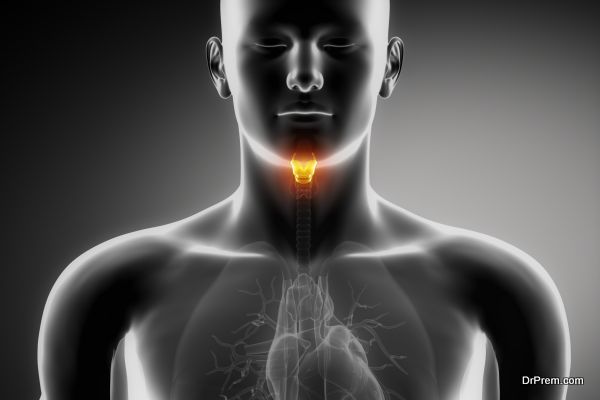Alpha lipoic acid (ALA), or 1, 2-dithiolane-3-pentanoic acid, plays a significant role in metabolism of mitochondrial energy. Alpha lipoic acid is beneficial as health supplement for healthy people and also in some diseases when taken under medical supervision.
Since human body produces small amounts of alpha lipoic acid, many opt for certain foods or supplements to replenish the requirement. There are no major side effects of alpha lipoic acid supplements if taken in measured quantities.
However, if these are taken in higher doses or in combination with other medications such as diabetes or thyroid drugs, it can lead to short-term side effects such as significant drop in blood sugar level, erratic thyroid hormone levels, nausea, allergies, fatigue and stomach upset to long term side effects such as atrial fibrillation.
Significant side effects of alpha lipoic acid supplements:
Erratic blood sugar levels

The people suffering from diabetes or hypoglycemia require to be very vigilant with regards to the use of alpha lipoic acid supplements. According to Canadian Diabetes Association, the recommended level for blood sugar is 4 to 7 mmol/L before meal and 5 to 10 mmol/L after having meal. The ideal dose of alpha lipoic acid per day is between 50-100mg. But if a healthy person takes ALA in higher doses, it can drop the blood sugar levels. ALA acts by producing higher level of glutathione in the blood stream, which in turn reduces the blood sugar level.
Further, a person already under medication of diabetes such as metformin or glyburide needs to be very careful and ascertain his/her blood glucose level before taking ALA supplements. As If the blood sugar level is low, ALA can further reduce the blood sugar level to very low.
Available forms of ALA supplements are capsules, tablets taken by oral route and injections that is by intravenous route. The ALA supplements may contain either active version of lipoic, that is the R isomer, or inactive version, the S isomer. The latter version is found most commonly in lipoic acid supplement products.
Therefore, combination of the alpha lipoic acid supplement with diabetes drugs can be harmful, and should be taken only after close monitoring of blood sugar levels under medical supervision.
Erratic heart rythm

Above the recommended dose of ALA for healthy people, that is above 100 mg/day of alpha lipoic acid taken, for multiple weeks can lead to atrial fibrillation and other heart rhythm problems. In atrial fibrillation symptoms such as fainting, palpitation and chect pain are common. Anti-coagulants and rhythm control medications are normally prescribed in such conditions by a doctor.
There are reports that 50 mg dose of ALA supplement (the R form of alpha lipoic acid) taken in combination with thyroid medication such as levothyroid, increases the heart beat significantly.
The heart rhythm generally gets normalized within a week or two, if there is no other cause after observing this side effect for higher doses of ALA. However, during such situations or above mentioned symptoms, people should not take chance and immediately go for medical consultation.
Hypothyroidism and hyperthyroidism

Higher doses of alpha lipoic acid supplements in healthy person, who doesn’t have any history of smoking can decrease the thyroid hormone level in the body. Therefore, correct usage and knowledge of proper dose is important tool in avoiding such incidents of occurrence.
Further, people already under medication for thyroid regulation such as levothyroxine should take extra care and closely monitor thyroid hormone levels before planning to consume alpha lipoic acid supplements. Consuming both simultaneously doubles the effect of lowering hormonal levels of thyroid.
Rashes and vitamin B1 deficiency

Higher doses of alpha lipoic acid in even a healthy person can result in rashes in skin. There are reports of allergic skin reactions, i.e. contact dermatitis, to have occurred after using alpha lipoic acid anti-wrinkle cream.
Further, taking alpha-lipoic acid when there is a deficiency of vitamin B1 (thiamine) might result in serious side effects and health issues as alpha lipoic acid reduces thiamine levels when consumed in high doses.
People who are addicted to alcohol or excessive use of alcohol are more prone to vitamin B1 deficiency as consistent alcohol use may significantly drop the amount of thiamine in the body. In such a situation, one should avoid taking alpha lipoic acid supplements or alternatively take thiamine supplement as a precaution if both alcohol and alpha lipoic acid are consumed concomitantly.
Insomnia and over stimulation

Further, people who take certain stimulating herbs and supplements shall show care when taking the alpha lipoic acid supplements containing the active form of the lipoic, called the R isomer, which may result in over stimulation.
Fatigue and stomach upset

People who have chronic fatigue syndrome are not advised to use alpha lipoic acid supplements as a substitute or as only medication for medical care. In such a situation, a visit to doctor for appropriate treatment is the best choice.
Vomiting, nausea and allergies

There are reports of association of vomiting and nausea with higher doses of alpha lipoic acid supplements. Above the recommended level of ALA supplements, i.e. at is greater than 100 mg per day for healthy person, can result in side effects for a short term.
Also, people having allergy to alpha lipoic acid should strictly restrain from using it. There are reports of occurrence of feeling of pain and redness after injecting of ALA, around t
he point of injection. When such symptom is observed, it is better to immediately discontinue use, and consult a doctor.
Decrease the effect of chemotherapy

As ALA is an antioxidant, therefore, it can reduce the efficacy of some medications used for treating cancer.
Interaction with antibiotics and anti-inflammatories

The ALA acts as an anti-oxidant and acts as protecting cover against the daily attack that lead to diseases and this property directly or indirectly interfere with the effect of antibiotics or anti-inflammatory drugs, when a person is under attack of infection. Therefore, one should consult a doctor under such situation and act accordingly.
Interaction with tranquilizers and vasodilators

This interaction, particularly due to ALA’s anti-oxidant property, results in lowering of efficacy of tranquilizers and vasodilators, which adversely affects treatment of people under medical condition of anxiety or high blood pressure and who take such medication.
Therefore, it is strongly advised to first consult a doctor before planning to go for any alpha lipoic acid based health supplements when faced with medical condition/s requiring use of tranquilizers and/or vasodilators.
Not recommended for children, pregnant or breastfeeding women

And for pregnant or breastfeeding women, alpha lipoic acid supplements should be a strict no no.




